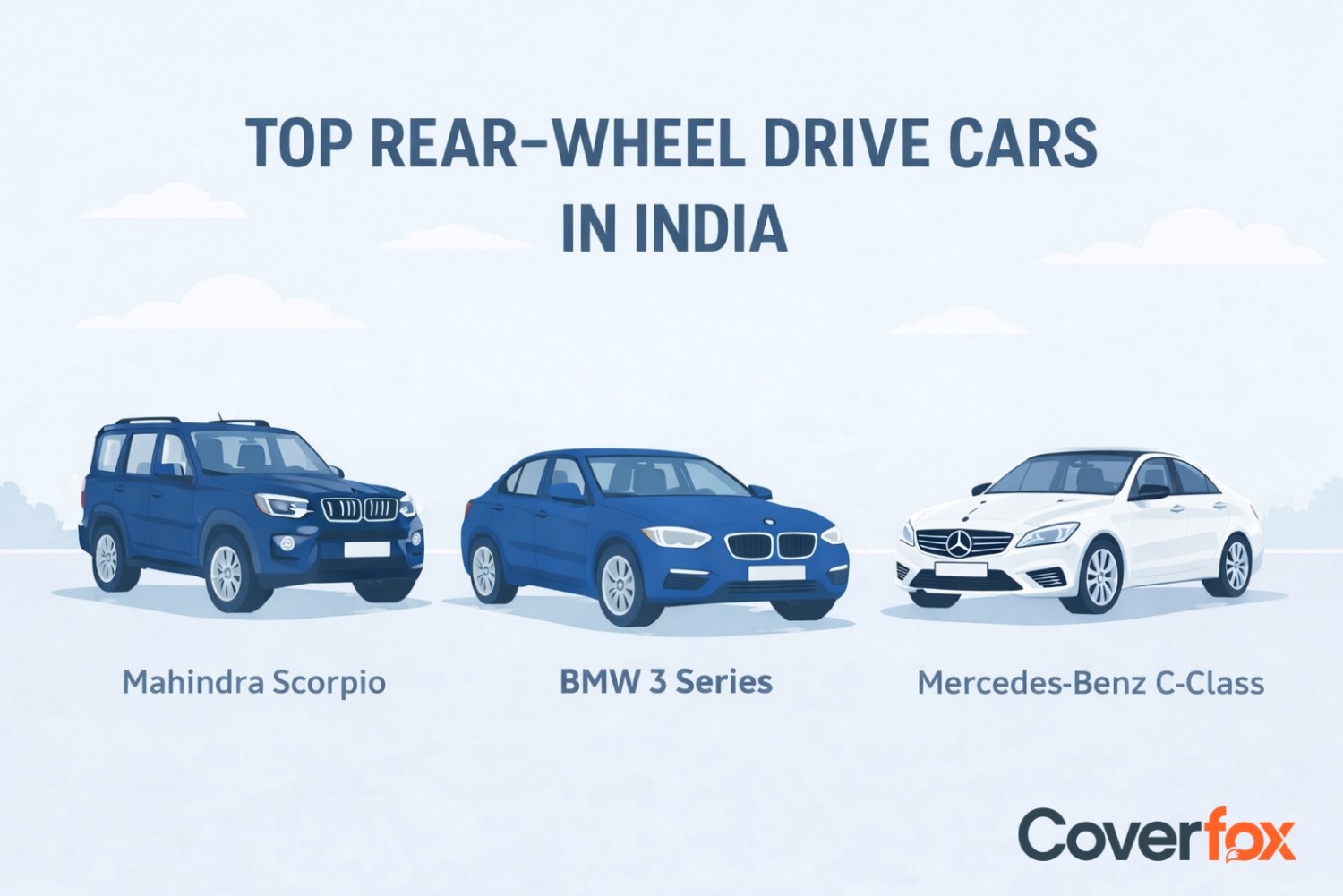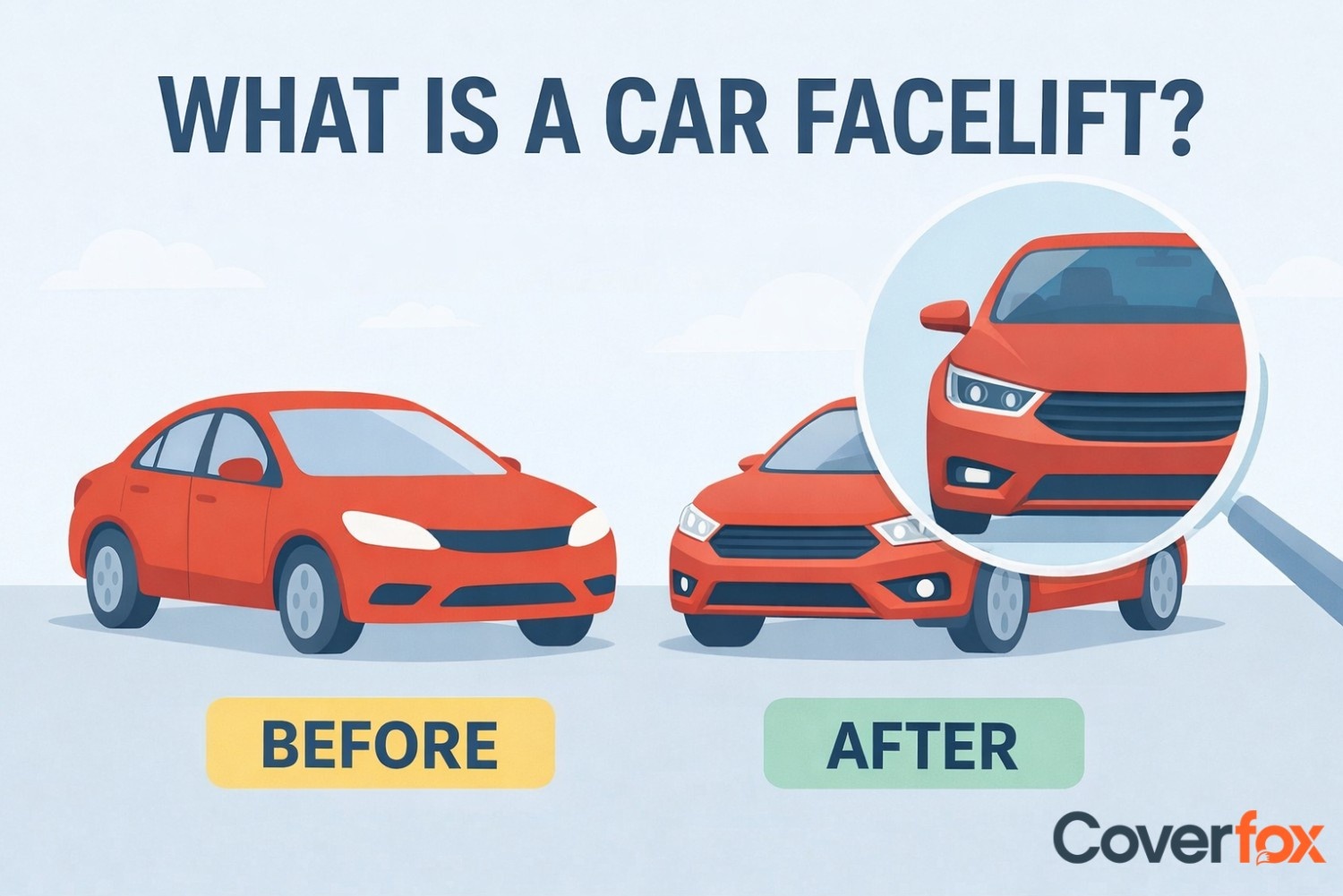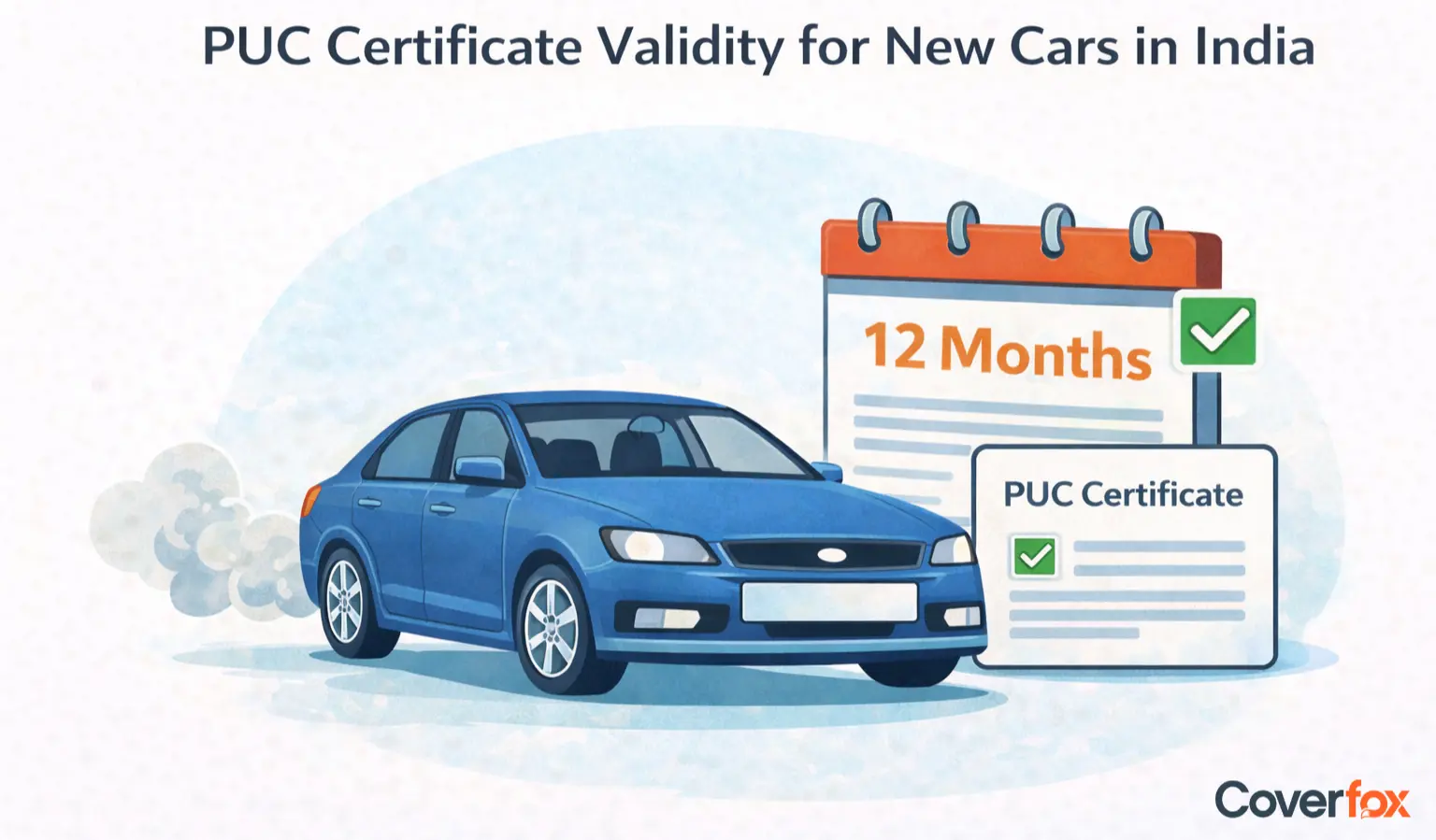Ever wondered what it would be like to drive a car that delivers powerful performance, but not at the cost of the environment? Well, your answer is a hybrid car! This is a car model designed for the future, offering the best of both worlds.

Meaning it is just as powerful as a gas-powered model, but it is more environmentally friendly with a better fuel economy. But to know exactly as to what is a hybrid car, how does it work, and why having the best insurance for a car is so important for these vehicles, this guide below answers all your questions—whether you want to buy a car insurance policy online or simply understand the features of hybrid cars.
What is a Hybrid Car?
A Hybrid car makes use of a dual-power system, consisting of an internal combustion engine (ICE) and one or more electric motors, delivering efficient performance on the roads. This car minimises impact on the environment, as it saves energy with regenerative braking, delivering a step towards a sustainable automotive future.
How Do Hybrid Cars Function?
To better understand how a hybrid car works, its mechanisms interplay to deliver optimum performance:
Engine Performance
Support from the Electric Motor
Regenerative Braking System
Charging the Battery
Energy Coordination
The petrol engine in a hybrid car works like a regular car engine. It not only moves the car but also helps recharge the battery pack while you drive.
The electric motor helps the engine, especially when you speed up or need more power, using energy from the battery to give the car extra strength to drive smoothly. In some hybrids, the electric motor alone can move the car at low speeds (like in traffic), but at higher speeds, the petrol engine takes over.
When you press the brakes, the car captures some of the energy that would normally be lost as heat into electrical energy and stores it in the battery. This helps keep the battery charged and improves overall efficiency.
The battery in a hybrid car is charged in a continuous procedure in two ways: by the petrol engine and by regenerative braking.
The advanced control systems inside the car constantly check how much power is needed, how much charge is left in the battery, and how you’re driving—deciding when to switch between the engine and the motor.
Different Types of Hybrid Cars
There are different hybrid cars available to suit various driving preferences, consisting of distinct features. Check out the different types of hybrid cars available here:
| Type of Hybrid Car | How It Works | Example |
|---|---|---|
| Parallel Hybrid | An electric motor and an engine can power the car together or separately. | Toyota Prius |
| Series Hybrid | The engine generates electricity for the motor; only the electric motor drives the wheels. | BMW i3 |
| Plug-in Hybrid | Larger battery charged via socket; can drive short distances on electricity alone. | Hyundai Ioniq Plug-in Hybrid |
| Full Hybrid | Integrates both electric components and a gasoline engine; can operate on either or both for better fuel efficiency and lower emissions. | Toyota Camry Hybrid |
| Mild-Hybrid | Electric motors assist the engine but cannot drive the car alone; they improve fuel efficiency and reduce emissions. | Maruti Suzuki Ciaz |
Key Features and Benefits of Hybrid Cars
There are not one, but multiple benefits and features of hybrid cars that make them a desirable choice for you. Let’s have a look at what they are:
1. Engine Shut-off at Idle
The “idle-off” feature suggests that even if the main engine is shut off, various other systems of the car would still be able to be operational, saving fuel and running on batteries.
2. Rapid Acceleration
When additional power is required while climbing hills or for quick energy, the electric motor can deliver instant torque to support the main engine.
3. Extra Power When Needed
Both the engine and the motor work in harmony, delivering extra power when required and improving fuel economy as well.
4. Brake Energy Recovery
It consists of regenerative braking, which charges the battery during braking or deceleration, leading to energy efficiency.
5. All-Electric Driving
Fuel consumption is saved, as these cars are able to travel certain short distances solely on electric power.
6. Eco-Friendliness
Due to its lower emissions and energy savings, it is considered a sustainable choice for the environment.
7. Monetary Advantages
Hybrid car owners save on fuel expenses, with certain government tax incentives applying to these cars in certain areas as well.
Pros and Cons of Hybrid Electric Vehicles
If you are looking to purchase hybrid cars in India, make sure to consider both their advantages and disadvantages:
| Advantages of Hybrid Cars | Disadvantages of Hybrid Cars |
|---|---|
| They are eco-friendly and produce lower emissions. | They generate less power than traditional cars. |
| You spend less on fuel because they are more efficient. | Hybrid cars are more expensive to buy. |
| They reduce dependence on fossil fuels. | Handling may be poorer due to extra weight. |
| Regenerative braking helps recharge the battery. | Maintenance costs are higher. |
| Built with lightweight materials for better efficiency. | High-voltage batteries can be dangerous in accidents. |
| An electric motor helps the engine and saves fuel. | Battery replacement is expensive. |
| Smaller engines use less fuel and are lighter. | Disposing of and recycling batteries can be difficult. |
| Automatic start and stop saves fuel at traffic stops. | Hydrogen fuel cell models can have reliability issues. |
Top 10 Hybrid Cars Available in India
Looking to buy one for yourself? We can make the choice easier for you through this detailed list of the 10 well-performing hybrid cars in India in 2025:
| Model Name | Mileage (km/l) | Average Ex-Showroom Price (₹) |
|---|---|---|
| Maruti Grand Vitara | 27.97 | ₹11.42 – ₹20.68 lakh |
| Toyota Urban Cruiser Hyryder | 27.97 | ₹11.34 – ₹19.99 lakh |
| Toyota Innova Hycross | 23.24 | ₹19.14 – ₹32.58 lakh |
| Maruti Invicto | 23.24 | ₹25.51 – ₹29.22 lakh |
| Toyota Camry | 25.49 | ₹48.50 lakh |
| Toyota Vellfire | 16.00 | ₹1.22 – ₹1.32 crore |
| BMW M5 | 49.75 | ₹1.99 crore |
| Volvo XC90 | 12.35 | ₹1.04 crore |
| BMW X7 | 14.31 | ₹1.31 – ₹1.35 crore |
| Audi Q7 | 11.00 | ₹90.48 – ₹99.81 lakh |
Why Hybrid Car Insurance is Important
Choosing the best insurance for a hybrid is integral, as while these cars may boast of fuel efficiency and minimum environmental impact, they also consist of advanced technology and expensive components that may require added expenses during maintenance and repairs.
Here’s why the right four-wheeler insurance will safeguard your hybrid car:
Protection Against Accidents & Damages
Cashless Repairs
Roadside Support
Customisable Add-ons
If a car is damaged in an accident, insurance helps with financial coverage for repair costs.
With a wide network of cashless garages, you can be assured of quality and smooth servicing.
If incorporated as an add-on, this provides extra financial support if the car faces a sudden breakdown or emergency on the road, delivering 24/7 roadside assistance.
To improve your existing coverage, you can customise your policy with add-ons like zero depreciation, tyre protection, etc.
Final Thoughts
A sustainable tomorrow for the automotive industry is answered in the form of a hybrid car. With the combined performance benefits of a petrol and diesel car engine mixed with an eco-friendly impact, it is an appealing choice for many. With numerous types of hybrid cars in India, go ahead and select the one that suits your driving style the best!
However, while choosing one, don’t forget to safeguard your hybrid car with the right car insurance. Buy car insurance online with Coverfox and secure your investment with multiple policy options to choose from!
Explore More:
Hydrogen Fuel Cell Vehicles in India
How to Transfer Your Car Insurance Policy
Frequently Asked Questions
What is good about hybrid cars?
In general, hybrid cars are a good choice to consider, as they offer better fuel efficiency, lower emissions and smooth performance compared to conventional cars.
Are hybrid cars different from electric cars?
Yes. The main difference is that hybrid cars function on both a petrol/diesel engine and an electric motor, while electric cars run exclusively on electricity.
How long do hybrid car batteries last?
In general, a hybrid car battery may last for about 8-10 years.
Do hybrid cars require charging?
No. Hybrid cars can self-charge, as most of them do not need external charging. Plug-in hybrids can be charged via a socket for a longer electric-only range.
Why do people buy hybrid cars?
Buying hybrid cars offers many benefits, such as fuel savings, lower emissions, tax benefits and advanced technological features.
How are hybrid cars different from electric cars?
While hybrid cars work on a dual system of petrol and electric power, electric cars rely solely on batteries and electric motors.
 in Cars.webp)



 in Car.webp)
